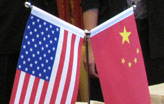View
Tensions remain even after Mullen's visit
Updated: 2011-07-18 10:33
By Zhang Wenzong (China Daily)
After Chief of the General Staff of the People's Liberation Army (PLA) Chen Bingde's visit to the United States in May, US Chairman of the Joint Chiefs of Staff Mike Mullen returned his appreciation with a four-day visit to China last week.
The hard-hit military ties between China and the US, which resulted from the latter's announcement of arms sales to Taiwan in early 2010, has been gradually recovering.
However, the ongoing tensions over territorial claims in the South China Sea pushed the maritime dispute to the top of the agenda during the admiral's visit.
There are three major conflicts between the two sides regarding the South China Sea. First, the two countries have different stances on the term "free navigation". China considers the waters to be free trade channels while the US is more concerned about the freedom of its reconnaissance patrols in the region.
Second, the US has reinforced its presence in Southeast Asia and held joint naval drills with nations that are involved in territorial disputes over the South China Sea. The behavior during such a sensitive time can be seen as taking sides.
Third, Beijing insists on handling the disputes on a one-on-one basis rather than multilaterally, a method that is strongly supported by the US.
Several Asia-Pacific nations, including Vietnam and the Philippines, have sovereignty claims over the South China Sea, which, historically, has been Chinese territory.
With the growing power, China is hoping to maintain and regain its lawful right to the South China Sea. The US seems to be planning to move its strategic focus back to Asia-Pacific region by using the territorial dispute as an excuse. Some neighboring countries of China are banking on the US to keep the global power structure balanced from China's unavoidable rise.
The Chinese military showed its determination to boost mutual confidence by taking Mullen on a tour of its Second Artillery Force Headquarters in Beijing, air force and army bases in Shandong province, and inviting him to watch the PLA's anti-terror drill in Zhejiang province.
The gesture gives a clear look at China's military capacity and also dispels misunderstandings on China's strategic purpose, which will help ease the tension between the two sides over the region and prevent the conflict from moving on to the next level.
It does make sense for the two countries to maintain close military ties and keep communicating about national defense and maritime security. But more importantly, the US should understand the harm brought by reconnaissance patrols in the South China Sea. By ending the reconnaissance patrols, it ends the root of the problem and any possible outbreaks between navy and air forces of the two countries.
As an experienced official of naval operations in the US, Mullen certainly has a deep understanding on the navy, naval strategy and maritime security.
None of the long-existing problems that burden military ties between China and the US have been solved during his recent visit to China, but no one can question the importance of the two sides building a connection.
It is good news that China and the US will hold unprecedented joint counter-piracy exercises in the Gulf of Aden by the end of this year, another avenue to strengthen their trust.
In an era of globalization, China and the US have to depend on each other for further development. It would be a disaster if any conflicts occurred between the two countries.
It is probably difficult for the superpower that is the US to accept the rise of China as well as alter its attitude toward its emerging economy. However, once the US realizes the consequences of the strategic confrontation and they respect and care for each other's core interests, there is no reason for the two sides to become opponents.
They need smart, political minds to create a mutually beneficial partnership. And the militaries from both sides can make an effort to help achieve that goal.
The author is from the Institute of American Studies with the China Institutes of Contemporary International Relations.
(China Daily 07/18/2011 page11)

Specials

China-US Governors Forum
The first China-US Governors Forum is held July 15 in the Salt Lake City, the United States.

My China story
Foreign readers are invited to share your China stories.

Rare earths export quota
China kept its export quota at almost the same level as last year.